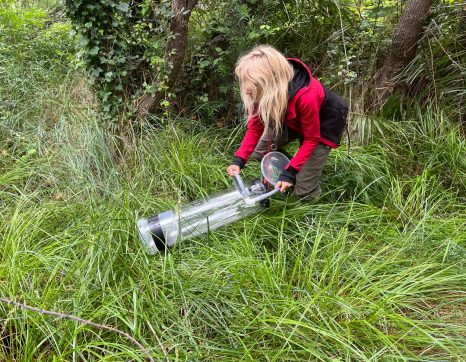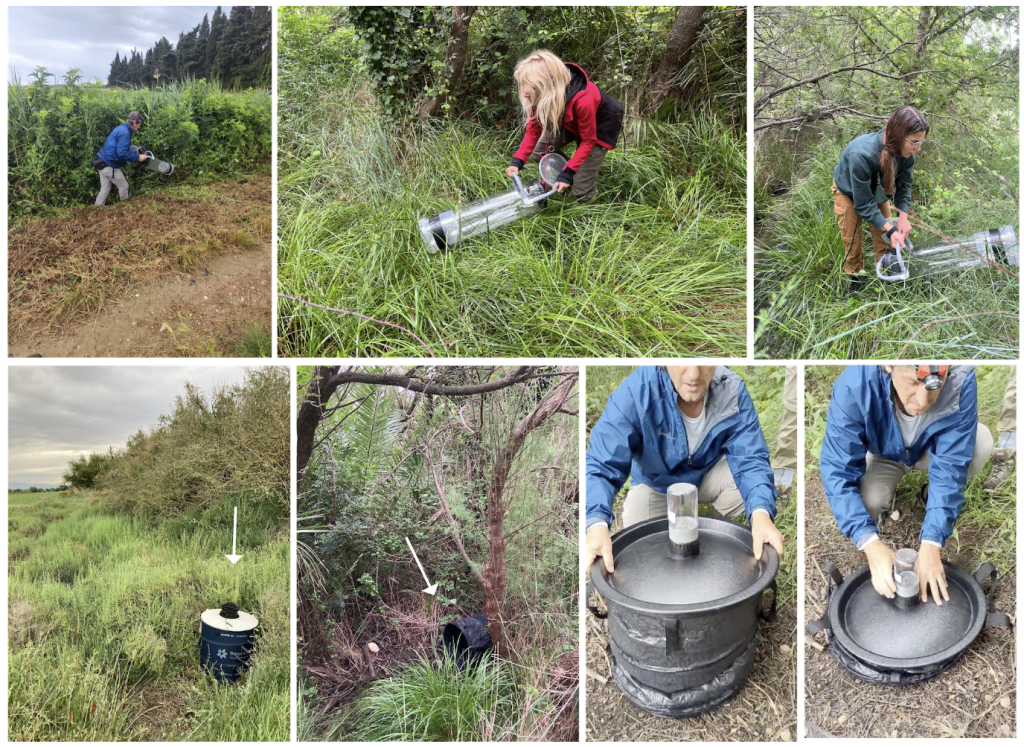
Refining blood-engorded mosquito collection strategies
During the E4Warning project, we are employing various methods to collect blood-engorged female mosquitoes to study their feeding patterns. The techniques include carbon-dioxide-baited BG-traps, mechanical aspiration with a powered vacuum aspirator, and artificial resting sites. Sampling began in April 2024 and will continue monthly until November 2024 for this year.
From June 10-15, we hosted Dr. Nathan Burkett-Cadena and Tanise Steen from the Florida Medical Entomology Laboratory, University of Florida, at our study area in Aiguamolls de l’Empordà (Girona, Spain). Their visit aimed to test these collection techniques and share their expertise. They brought vacuum aspirators and resting traps developed by their lab to evaluate their combined efficacy in capturing blood-fed female mosquitoes across different habitats.

The Florida researchers developed human-powered resting traps designed for cavity-resting mosquitoes like Culex. These traps, set among vegetation in dark areas, attract mosquitoes seeking refuge during the day. Traps are placed horizontally to attract Culex and vertically to attract Anopheles mosquitoes and are collected the following day.
To maximize mosquito collection, we combined resting shelter traps and BG-traps with a large-diameter aspirator. These aspirators, designed by Dr. Burkett-Cadena’s team, use an automotive radiator fan to create directional airflow, capturing mosquitoes in a mesh-bottom plastic collection cup.
The insights gained during this visit and throughout the 2024 mosquito season will help finalize protocols for capturing blood-fed females, aiding in our study of mosquito feeding patterns.
- Burkett-Cadena. 2011. A wire-frame shelter for collecting resting mosquitoes. Journal of the American Mosquito Control Association 27: 153–155
- Burkett-Cadena et al. 2019. Human-powered pop-up resting shelter for sampling cavity-resting mosquitoes. Acta Tropica 190: 288-292
- Sloyer et al. 2022. Evaluating sampling strategies for enzootic Venezuelan equine encephalitis virus vectors in Florida and Panama. PLoS Negl Trop Dis.16:e0010329
- Jaworski et al. 2022. Artificial resting sites: An alternative sampling method for adult mosquitoes. Medical and Veterinary Entomology 36: 139–148
